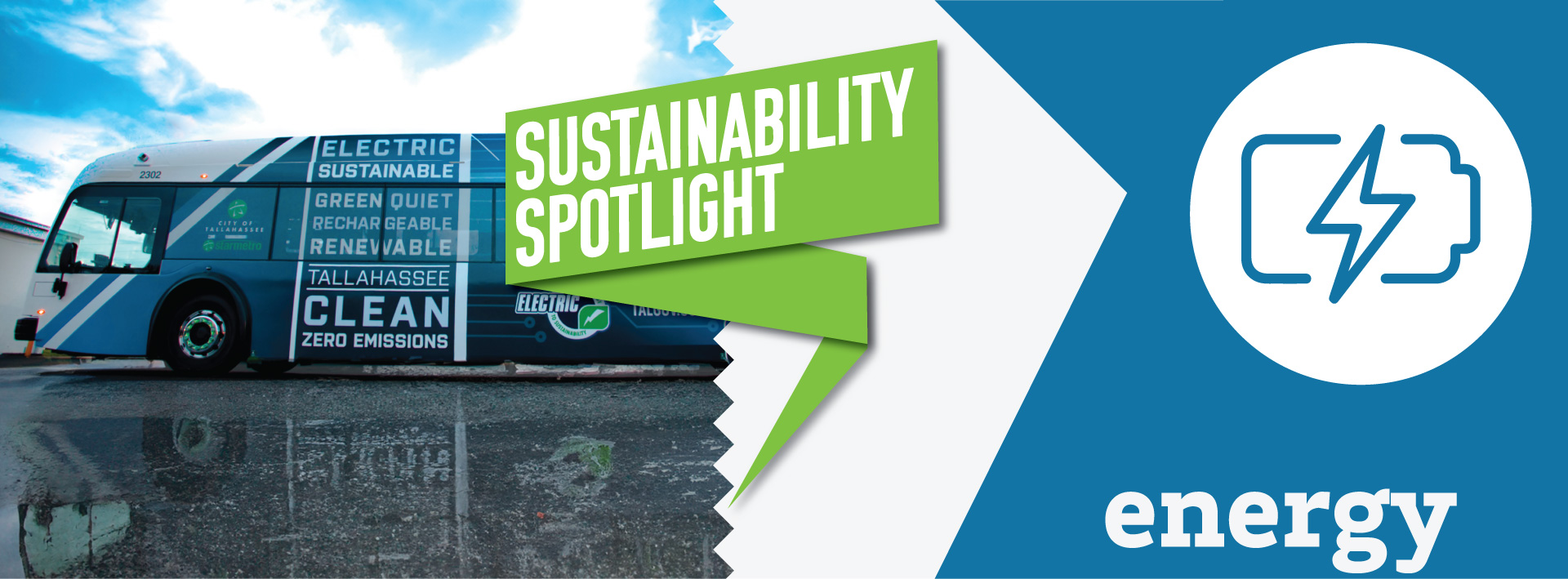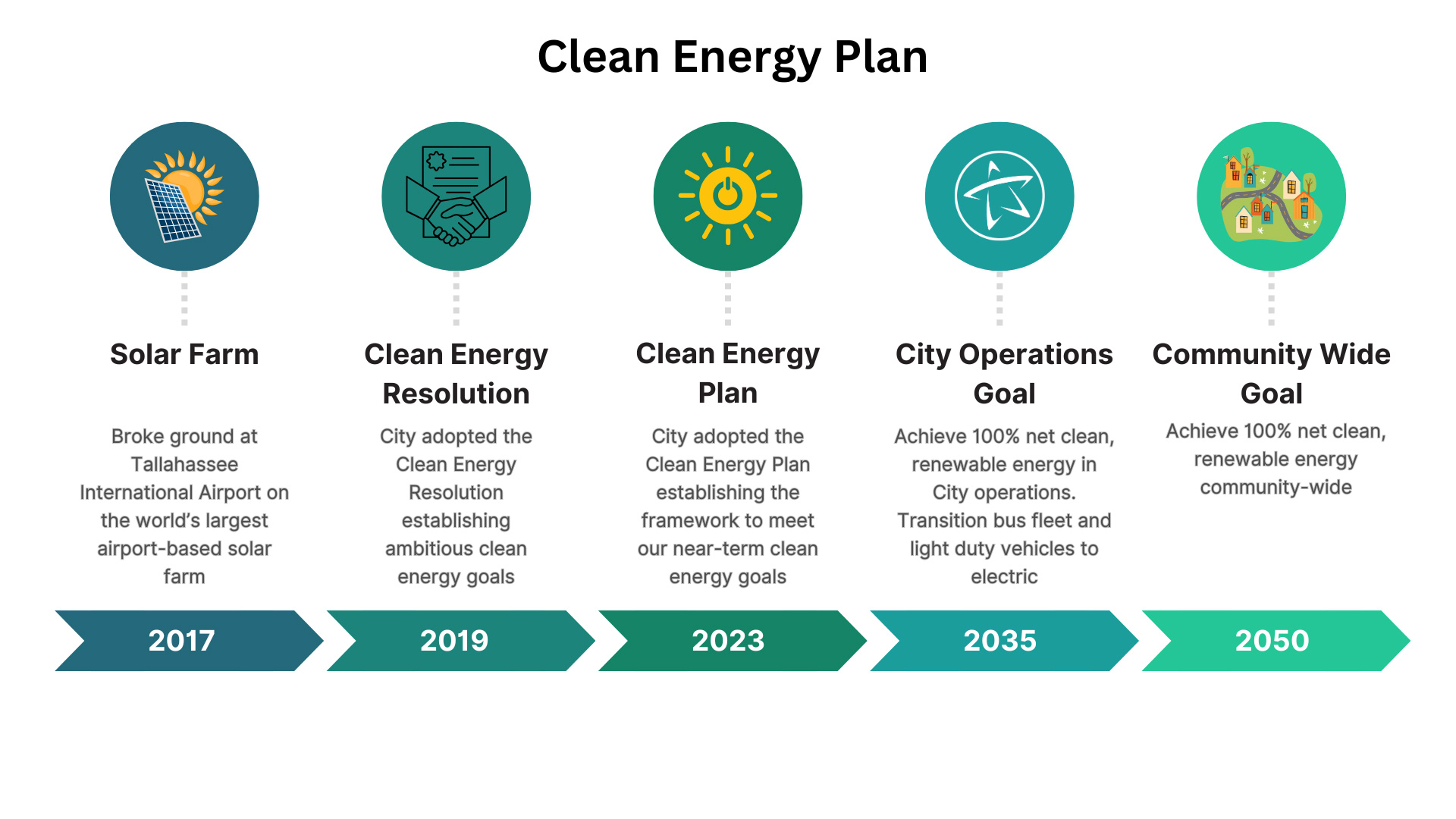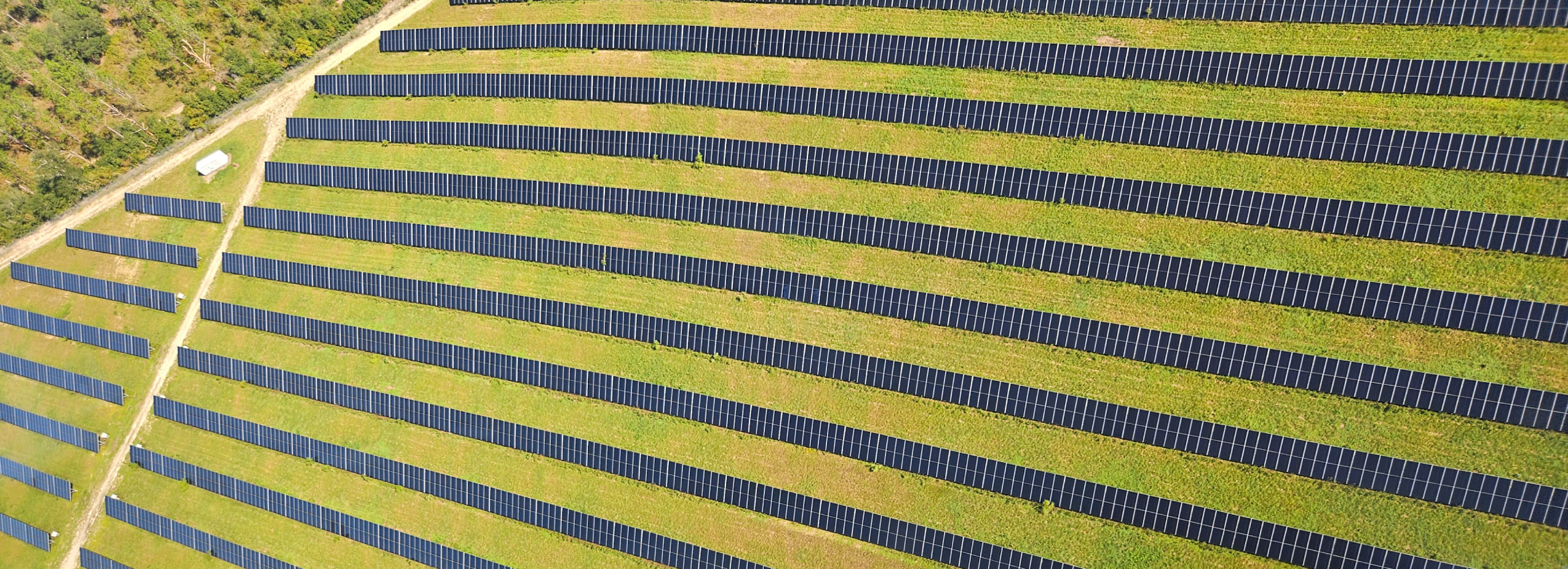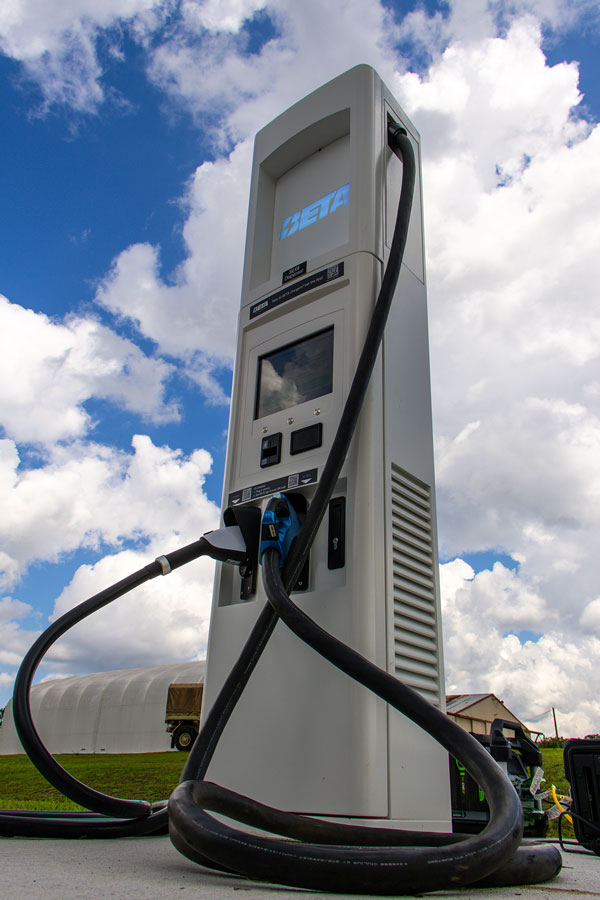
Energy
GOAL: Provide a safe, reliable, efficient and cost-effective energy system that moves the City toward a net-zero carbon operation and 100 percent clean renewable energy.
FOCUS AREAS:
- Energy Efficiency
- Clean Energy Generation
- Clean Fuel Vehicles
- Electric Vehicle Infrastructure
Clean Energy Plan Timeline

Clean Energy
Adopted in August 2023, the City’s Clean Energy Plan identifies 85+ action items across all City departments related to renewable energy, energy efficienc, and clean transportation. Implementation of the Clean Energy Plan is well underway with various projects in process, some of which are highlighted below. Access the City’s Clean Energy plan at Talgov.com/CleanEnergyPlan.
Clean Energy Generation
Solar energy production and grid hardening continued to be a cornerstone of the City’s clean energy goals in Fiscal Year 2024 (FY24), resulting in:
- $28+ million in grant funding awarded to strengthen the City’s electric grid through a five-year project, which includes a utility-scale battery energy storage system, hardening poles and other aerial equipment, and implementing automated smart distribution equipment that will address faults and brief outages without the need to dispatch service personnel.
- 50 kW floating solar project approved for construction located at the City’s wastewater holding pond.
- 115 solar net metered systems approved.
Since 2019, approximately 1,030 solar permits have been issued by the City. To keep up with residential solar growth, the City established two new Solar Coordinator positions to meet high electric utility interconnection and net metering demands. The City also continues to promote solar installations by awarding credits for kWh over-production at the full retail rate.

Clean Fuel Vehicles & Infrastructure

The City’s 2019 Clean Energy Resolution set forth ambitious goals to convert the City’s light duty fleet of vehicles to electric or hybrid by 2035. The City has made significant progress toward this goal. As of February 2025, 33% of the City’s light duty fleet is made up of electric or hybrid vehicles, up from 21% last year. By year’s end, it is anticipated that approximately 39% of the light-duty fleet will be electric or hybrid. Today’s fleet includes:
- 123 electric vehicles (EV) in use, with an additional 13 ordered
- 82 Compressed Natural Gas vehicles
- 181 hybrid vehicles, with an additional 51 ordered
- 42% of StarMetro’s bus fleet has transitioned to battery electric buses
To accommodate Fleet’s transition to cleaner vehicles, the City has installed over 80 EV charging stations for its light-duty fleet vehicles, as well as three public charging stations, located at:
- Renaissance Center | 435 N Macomb St, Tallahassee, FL 32301
- Cascades Parking Garage | 7 E Bloxham St, Tallahassee, FL 32301
- John Marks Innovation Center | 408 N Adams St, Tallahassee, FL 32301
Building on the permanent EV infrastructure, Fleet received the City’s first emergency mobile generator providing four additional EV charging ports capable of charging critical buildings as well as EVs. City staff is on track to operate and deploy the mobile unit in time for the 2025 hurricane season to help facilitate fueling and operations during emergencies.

The Tallahassee International Airport (TLH), in collaboration with key partners including BETA Technologies, successfully installed and commissioned the City’s first electric aircraft charging station. This state-of-the-art charger provides affordable, low-cost electricity to power aircraft, vehicles and buses, furthering the City's commitment to sustainable transportation solutions.
As of February 2025, electric and hybrid fleet vehicles have been driven nearly 6.2 million miles, representing an estimated savings of over 5.5 million pounds of CO2. This represents an emissions savings equivalent to planting over 41,250 trees!
Energy Efficiency Incentives
The City continues to offer customers financial incentives to reduce energy consumption and increase efficiency. Effective March 1, 2025, the City updated its Energy Efficiency Loan Program, which can be used to finance over 25 energy efficiency measures. Loans are now available for up to a seven-year term (up from five years) and a maximum loan amount of $15,000 (up from $10,000), all while keeping interest rates steady at 5%.
In addition to loans, the City also offers free residential and commercial energy audits and grant and rebate programs aimed at reducing energy consumption. Participation in FY24 included:
-
2,000+ ENERGY STAR appliance rebates totaling over $468,230
- 180+ ENERGY STAR certified new home rebates totaling over $306,000
- 360+ energy efficiency grants totaling over $151,000
- 100+ commercial energy audits
- 3,910+ residential energy audits
- 280+ residential loans totaling nearly $2,224,185
- 240+ ceiling insulation grants totaling $93,587